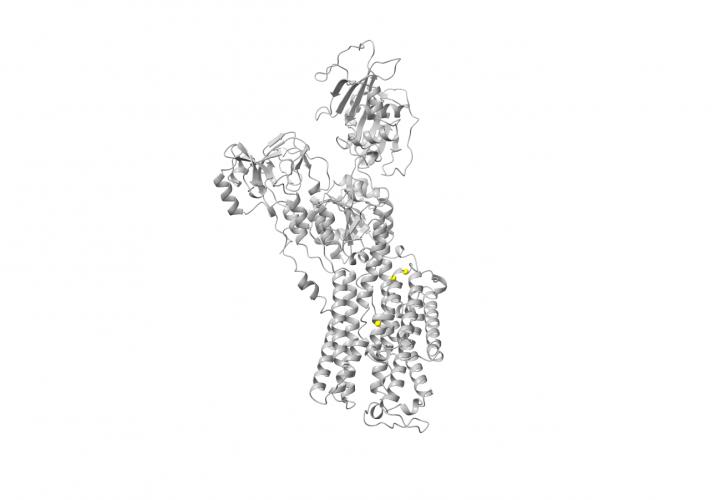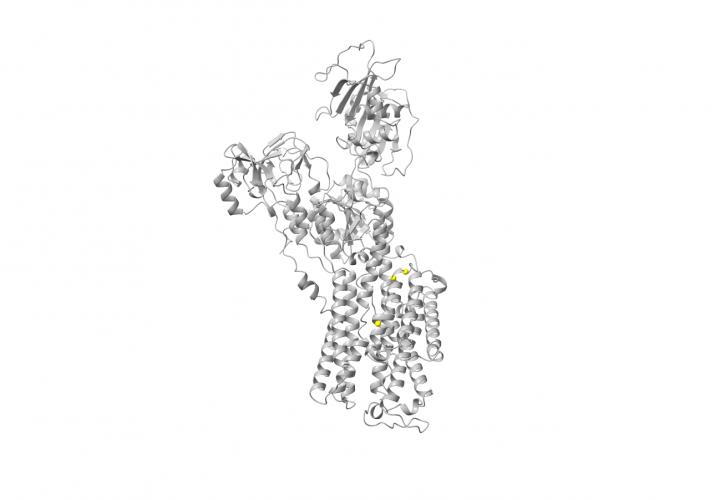
Credit: Boris Chaumette
Scientists at the Montreal Neurological Institute and Hospital (The Neuro) and McGill University have identified novel genes associated with a specific form of schizophrenia.
Schizophrenia is a major psychiatric illness affecting one per cent of the population worldwide. Patients suffering from schizophrenia present delusions, hallucinations, abnormal behavior, impairment in daily life and cognitive deficits. Current treatments are insufficient in addressing all of these symptoms.
The heritability of schizophrenia is estimated at 80 per cent, but the identification of genes associated with this illness has been challenging.
To identify new genetic variants of this disorder, scientists believed that exploring an extreme and severe form would be helpful, so they chose to focus on childhood-onset schizophrenia, a rare disease with a prevalence of approximately 1 in 40,000. This form has similar symptoms as the adult form, but its onset occurs before the age of 13, and has a very negative outcome. Patients suffering from childhood-onset schizophrenia are generally severely disabled and do not complete a normal school curriculum, nor develop a social life.
A team of researchers recruited and analyzed genetic data from 19 patients with childhood-onset schizophrenia and their unaffected parents. They found that three patients showed a mutation in the ATP1A3 gene while three others showed genetic variants in the FXYD genes, a gene family that contributes to the normal functions of ATP1A3. Mutations affecting ATP1A3 were previously reported in other rare neurological childhood diseases, confirming it has an important role in neurological diseases. This study provides evidence that this gene is also involved in psychiatric disorders.
The identification of genetic variants is the first step forward in efforts to treat childhood-onset schizophrenia. The immediate impact will be to enable diagnosis of patients and provide genetic information to the families. In the future, personalized therapies may follow and some drug interventions might become available for carriers of ATP1A3 mutations.
"Our identification of genes responsible for this terrible condition means researchers can focus on developing drug therapies to give patients better outcomes," says Dr. Boris Chaumette, a post-doctoral researcher in the lab of Dr. Guy Rouleau at The Neuro, and the study's first author. "It will also decrease the guilt the children's parents often feel, because they think they somehow caused their child's condition."
###
This work, conducted in collaboration with scientists from France (Department of Child and Adolescent Psychiatry in Rouen University Hospital and Pitié-Salpêtrière Hospital in Paris) and the United States (National Institutes of Health), was published in the journal Molecular Psychiatry on June 12, 2018. It was funded by Genome Canada and Genome Quebec and supported by the Canadian Institutes for Health Research (CIHR) and the Healthy Brain for Healthy Lives – McGill University initiative.
About The Montreal Neurological Institute and Hospital
The Montreal Neurological Institute and Hospital – The Neuro – is a world-leading destination for brain research and advanced patient care. Since its founding in 1934 by renowned neurosurgeon Dr. Wilder Penfield, The Neuro has grown to be the largest specialized neuroscience research and clinical center in Canada, and one of the largest in the world. The seamless integration of research, patient care, and training of the world's top minds make The Neuro uniquely positioned to have a significant impact on the understanding and treatment of nervous system disorders. The Montreal Neurological Institute is a McGill University research and teaching institute. The Montreal Neurological Hospital is part of the Neuroscience Mission of the McGill University Health Centre. For more information, please visit http://www.theneuro.ca
Media Contact
Shawn Hayward
[email protected]
514-398-3376
@McGillU
http://www.mcgill.ca
Original Source
https://www.mcgill.ca/neuro/channels/news/genes-associated-infantile-forms-schizophrenia-identified-287769 http://dx.doi.org/10.1038/s41380-018-0103-8





